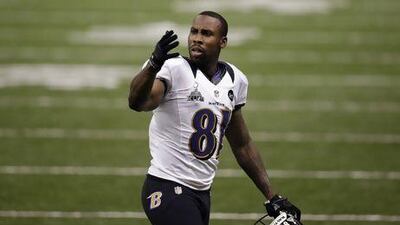Loyalty, as the saying goes, is a two-way street. Yet the perception among American sports devotees is that the traffic is all headed in one direction.
Players under contract hold out, wanting more, more, more. Upon becoming free agents they bolt for the highest bidder rather than re-sign with the team that made them wealthy.
Collectively, they walk out on strike.
Sometimes, yes.
In the Baltimore's Super Bowl win, Anquan Boldin exceeded 100 receiving yards with six receptions, one for a touchdown, another for a critical third-down conversion on a ball that seemed uncatchable.
He was under contract for one more season. But because the Ravens chose to divert every available dollar to quarterback Joe Flacco, they asked Boldin to take a 33 per cent pay cut. Or else.
He declined. So Baltimore shipped him out.
Not to throw a pity party for Boldin, but when the guy expresses a desire to complete his deal with the franchise that benefited from his astounding post-season, loyalty suggests that it abide by the agreement. Feeling guilty, the Ravens traded him to the best possible team - the San Francisco 49ers, whom he tormented in the Super Bowl.
This all-too-uncommon scenario is almost unique to the NFL, which generally does not guarantee contracts. In the confounding system, the more bountiful the deal, the better chance it will not stand up through the expiration date.
Think about this: The most richly compensated players increasingly hold less job security than those with mid-range salaries.
Follow us

